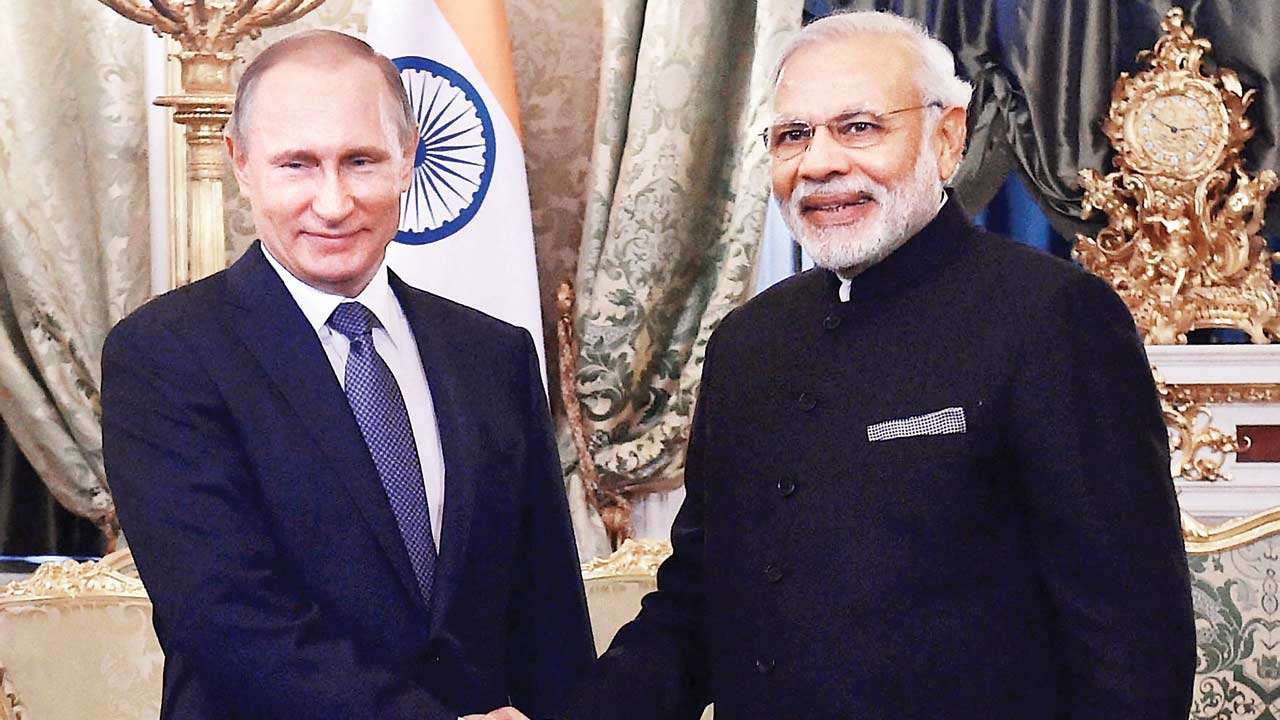
The summer of 2018 is witnessing an unprecedented churn in geopolitics of Asia. Just look at the slew of activities, high-level meetings and summits taking place in the past two months or those scheduled until end-June.
It all began with President Donald Trump launching a ‘trade war’ against China followed by a sudden informal summit between Prime Minister Narendra Modi and China’s supreme leader Xi Jinping; on the same day, leaders of the two Koreas met at the demilitarised zone between the two countries in the run-up to the much-anticipated powwow between North Korean dictator Kim Jong-Un and Trump in mid-June. That’s not all.
Prime Minister Modi is the key-note speaker at the Annual Security Dialogue in Singapore organised by the Internal Institute of Strategic Studies (IISS) on June 1. Before that, the Indian Prime Minister will travel to Sochi to hold another informal summit with President Vladimir Putin, and also visit Indonesia at the end of May. Meanwhile, China and Japan have embarked on their own ‘reset’ with Chinese Premier Li Keqiang becoming the first top Chinese leader to visit Japan in eight years.
Clearly, the wider Indo-Pacific is where the action is. The hectic diplomatic activity points to two broad trends: One, the jostling between China and the United States for establishing dominance in Asia has intensified and two, other important players in the region—India, Japan, Indonesia, South Korea, Singapore and Australia, to name just five—are watching the developments closely and charting out their own bilateral and multi-alignment strategies to deal with the likely fallout of the intensified competition for influence between the two most powerful nations.
But there are other subsets of challenges that define foreign policy priorities for all the important players in the Indo-Pacific. While Tokyo and Beijing have signalled warming of relations, ties between Australia and China are not at their best right now.
Closer home, India, for instance, has adopted a multi-pronged strategy to retain primacy in its immediate and extended neighbourhood. New Delhi under Prime Minister Narendra Modi’s government is trying to make sure India remains relevant in the fluid global situation. His informal meeting with President Xi at Wuhan has brought the Sino-Indian relationship back on track although both remain conscious of the difficulties that the ties face. Similarly, his upcoming meeting with President Putin is aimed at restoring the balance in the India-Russia partnership which has come under some strain in recent times because of multiple factors. Although Russia remains India’s biggest arms supplier, Moscow has been sulking of late because of India’s perceived tilt towards Washington. Prime Minister Modi and his foreign policy team, aware of the Russian unhappiness—and its demonstrative outreach to Pakistan—have taken the right steps to assure Russia. The summit at Sochi on May 21 should iron out the wrinkles. Since supply of defence hardware to India remains the centrepiece of India-Russia ties, Moscow should feel reassured that India is looking to finalise the purchase of at least three major platforms—the S-400 air defence missile system, Kamov helicopters, four frigates—and lease another nuclear submarine in addition to the one already operated by the Indian Navy, during Prime Minister Modi’s visit.
Apart from Moscow, the Prime Minister is scheduled to visit Indonesia (end-May), Singapore (for the Shangri La Dialogue and bilateral talks), attend the SCO summit in China, over the next one month, underlining multiple interests that India is pursuing. India has to tread cautiously across the Indo-Pacific because of the new realities. The ongoing competition for influence in the region has given rise to many regional and sub-regional alliances. For instance, there is ASEAN—the oldest block—apart from SAARC, BIMSTEC, RCEP, BCIM and the SCO, just to sight some examples. China actually drives many of the blocks and regional alliances in the Indo–Pacific, demonstrating its clout, acquired over the past few decades.
Similarly, China’s widespread footprints in South Asia, has been a growing concern in New Delhi for some years. This is going to remain the Indian ruling establishment’s biggest challenge in the near future too despite an assertive and confident ruling dispensation in New Delhi at the moment. The Wuhan thaw notwithstanding, China’s one big strategic aim is to undercut India’s influence in South Asia. Admittedly, New Delhi cannot match Beijing’s deep pockets and its cheque book diplomacy but given its deep-rooted cultural and civilisational ties with the extended neighbourhood, India is not completely out of the game. Its recent upgraded engagement with the ASEAN nations, its growing security cooperation with Afghanistan and key nations in the Middle East and its deft handling of the United States makes India a key player in the Indo-Pacific. Its bureaucracy, however, needs to deliver on promises on time to retain India’s credibility with smaller nations.
The Modi government’s Indian Ocean strategy, which includes use of port facilities in Oman, Seychelles, Mauritius, Reunion and strengthen defence facilities on the strategically located Andaman and Nicobar Islands, also points to a new vigour in India’s approach to security and strategic affairs.
Prime Minister Modi may, however, look back at his four years in office and regret the lack of success in India’s ties with Pakistan. Despite his best efforts, the Pakistan deep state (read the Pakistani Army) has prevented any meaningful progress in this difficult relationship. Although the Pakistani Army chief has now made some positive overtures in the last few weeks, India is likely to tread cautiously given the past experience. However, given the Prime Minister’s ability to make unexpected moves, it is not inconceivable to think that he and his national security team may have some surprises up their sleeves in the coming months.
The writer is a strategic affairs analyst, author and founder of BhartShakti.in, a specialised defence website. Views are personal.